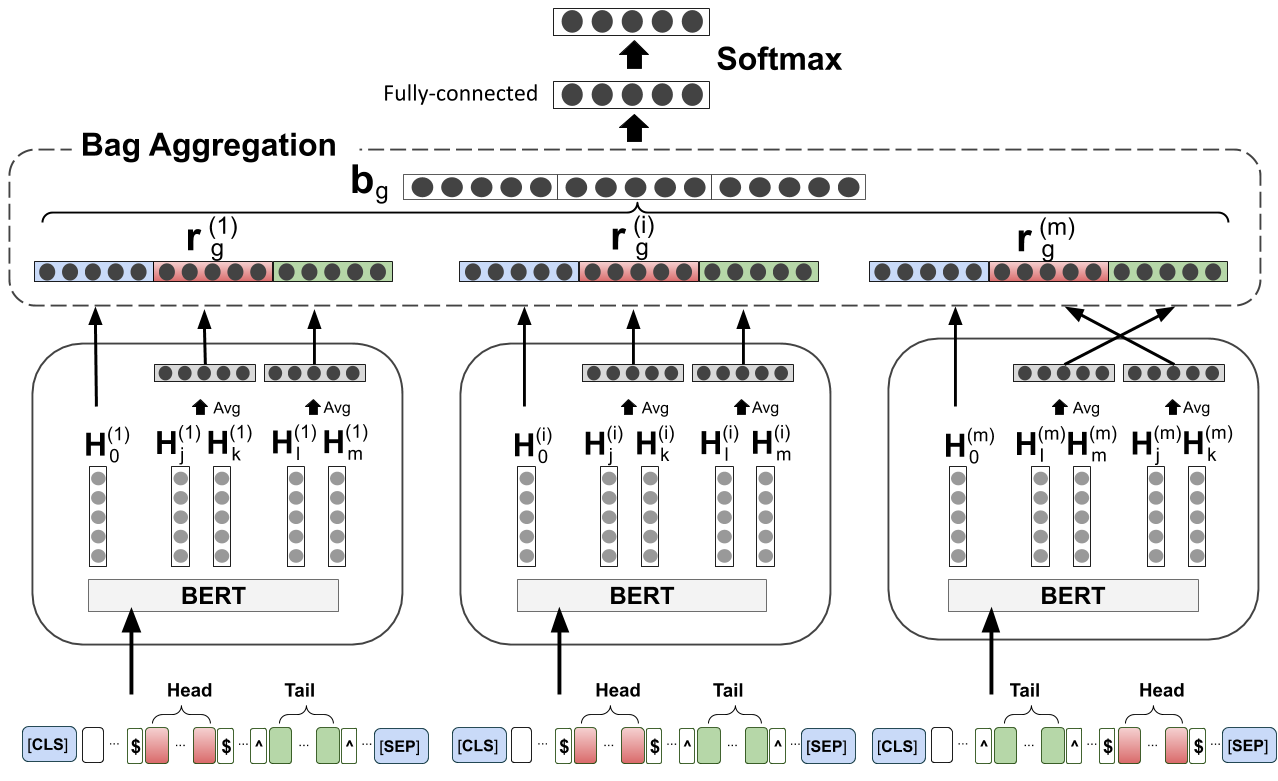Code for the paper BioNLP 2020 paper A Data-driven Approach for Noise Reduction in Distantly Supervised Biomedical Relation Extraction.
pip install -r requirements.txt
To run the code, please obtain the data as follows:
Install the UMLS tools by following the steps here. Once installed, under INSTALLED_DIR/2019AB/META, you can find MRREL.RRF and MRCONSO.RRF, copy the files and place under data/UMLS.
Download MEDLINE abstracts medline_abs.txt (~24.5GB) and place under data/MEDLINE.
UPDATE: Please follow the discussion here: #2
- From project base dir, call the script to process UMLS as:
python -m data_utils.process_umls. This will create an objectdata/umls_vocab.pkl. - Next, run the script
python -m data_utils.extract_unique_sentences_medline. This might take a while. This will create a filedata/MEDLINE/medline_unique_sentences.txt. - Link the entities with texts:
python -m data_utils.link_entities(seeconfig.pyto adjust linking settings).
To reproduce the data splits used reported in the paper for k-tag setting, run wit default options as python -m data_utils.create_split. This will take a while for the first time because of generating the one time file data/MEDLINE/linked_sentences_to_groups.jsonl. For next runs, it will use the cached version. For s-tag, set the flag k_tag=False in config.py. For s-tag+exprels, additionally set the flag expand_rels=True.
Run python -m data_utils.features. Running the job with multi-processing will be significantly faster.
Run python train.py.
Download the best model checkpoint here.
If you use this code for your research, please consider citing:
@inproceedings{amin-etal-2020-data,
title = "A Data-driven Approach for Noise Reduction in Distantly Supervised Biomedical Relation Extraction",
author = "Amin, Saadullah and Dunfield, Katherine Ann and Vechkaeva, Anna and Neumann, G{\"u}nter",
booktitle = "Proceedings of the 19th SIGBioMed Workshop on Biomedical Language Processing",
month = jul,
year = "2020",
address = "Online",
publisher = "Association for Computational Linguistics",
url = "https://aclanthology.org/2020.bionlp-1.20",
doi = "10.18653/v1/2020.bionlp-1.20",
pages = "187--194"
}Also, check our follow up work introducing a new benchmark using PubMed abstracts and SNOMED CT knowledge base, MedDistant19:
@inproceedings{amin-etal-2022-meddistant19,
title = "{M}ed{D}istant19: Towards an Accurate Benchmark for Broad-Coverage Biomedical Relation Extraction",
author = "Amin, Saadullah and Minervini, Pasquale and Chang, David and Stenetorp, Pontus and Neumann, G{\"u}nter",
booktitle = "Proceedings of the 29th International Conference on Computational Linguistics",
month = oct,
year = "2022",
address = "Gyeongju, Republic of Korea",
publisher = "International Committee on Computational Linguistics",
url = "https://aclanthology.org/2022.coling-1.198",
pages = "2259--2277",
}We thank Qin Dai (daiqin@ecei.tohoku.ac.jp) for guiding us on steps to obtain the relevant triples data from the UMLS in private communication.
